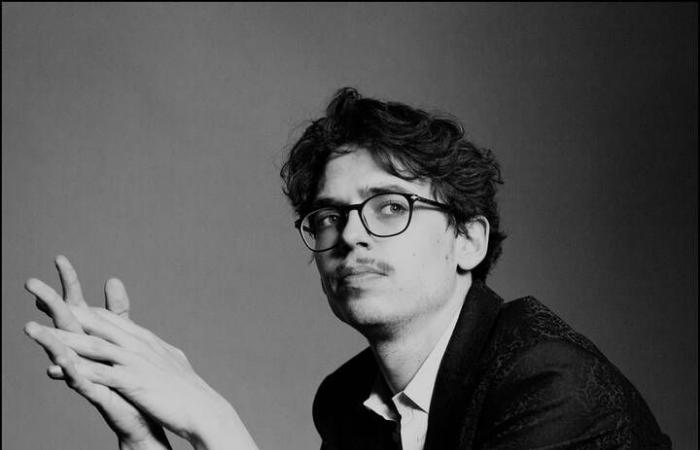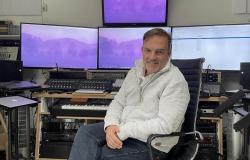“We must take the public into the projection of their imagination”
The pianist with broad horizons – he studied literature between the ages of 17 and 20 – has never played at the La Chaux-de-Fonds Music Hall. “I can’t wait to discover this room because I’ve heard a lot about it through the recordings,” he says. In the interpretation, there is a huge amount of imagination. You have to succeed in taking the audience into the projection of their imagination. I am not an idealistic aesthete who says to himself that we must build a kind of cathedral of sounds, the audience being a spectator of this sound architecture. In addition, I have very little of the audiophile side: what interests me is the fairly raw side of sharing music. I don’t entertain the idea of sitting down and having a gastronomic experience of listening to music. What interests me is the discursive and narrative aspect, that is to say how do you create a hook, a starting point to then develop the sound and take the audience with you. »
Lucas Debargue is very wary of the notion of “reference” in matters of interpretation: “I think it is a false notion and that it is a dead end. Take the representations of the Annunciation in Italian painting: we need all these versions – and not just those of Fra Angelico.” Same thing for music. “What justifies a concert performance is not to reproduce for the umpteenth time the way Maurizio Pollini played Chopin or the way Schnabel played Beethoven. For me an interpretation must be a proposition. If I play a certain passage at that tempo because I heard a certain “reference” version or because my teacher told me to do so, or even to bring a kind of satisfaction to people who have this culture audiophile, that has nothing to do with art. We switch to an almost aesthetic side which has the risk of bordering on the decorative.”
Lucas Debargue also denounces “the Epinal images which stick to composers, from a photo or a painting, and a little bit of romantic extrapolation”. He takes the case of Chopin, of whom there is a tendency to “round off” the angles, often described as “a somewhat ailing aristocrat” while his music is “incredibly irregular, steep, using extraordinary modulation processes”. He is wary of “the kind of cultural construction around composers” and the “dynastic” transmission from one student to another, over generations. “The interpreter has a duty, it seems to me, to deconstruct a lot of preconceived ideas which are almost part of our DNA.”
Surprise and confuse the audience
He considers that distancing oneself from a work in order to supposedly be more scrupulous or faithful to it makes no sense. “I wonder how anyone can dare to play Sonate Opus 111 by Beethoven if you don’t think you’re a bit like Beethoven. Obviously, we remain a humble servant of music, but the moment we take up the piano, we must try everything. Even in its physicality and its organic dimension, this music demands total investment from the performer.”
-
Fascinating reflections which drag on with the idea that it is not really the piano that interests him, but music, with its content, its inner ramifications. “Some people want to hear the sound of the piano. For me, what matters is precisely being able to transform the sound, to make people forget the hammers. » He cites the case of pianist Vladimir Horowitz: “There are supernatural sounds about him that fascinate me, an extremely addictive strangeness.” But Lucas Debargue never seeks to imitate his sources of inspiration: they are “benchmarks”, he says, remaining faithful to his ethics which consists of making a living from his recitals and concerts, on the fringes of the modes of interpretation , even if it means surprising and confusing the audience with biases based on his spirit as a pianist-composer.
Lucas Debargue in concert, Music Hall, La Chaux-de-Fonds, Tuesday January 21, 2025 at 7:30 p.m.




